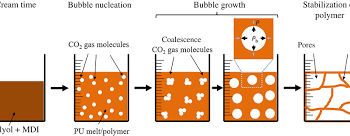The United Arab Emirates has become a top spot for international arbitration, turning into a main regional center for solving business issues. The UAE arbitration law mixes the best of old customs and new global trends which helps to draw companies and lawyers from across the globe. Because of its many positive features, this legal system encourages users to consider it over traditional court litigation for solving disputes in business.
- Historical Development and Legal Framework
Significant changes have happened in the UAE’s arbitration law since its country’s creation which displays the country’s intention to have a top-quality legal system. Initially, each emirate had its own arbitration provisions written into the civil process codes, now all this is moving towards a unified and thorough process. The arrival of Federal Law No. 6 of 2018 on Arbitration resulted in a fresh, updated system based on global best practices. The law was built on the ideas found in the UNCITRAL Model Law and also reflects the main legal and cultural elements of the UAE. The growth of the law suggests the UAE is aiming to lead in resolving disputes across the Middle East.
- International Recognition and Standards
The UAE is recognized globally for its arbitration system following international guidelines and best practices. Because Canada honors accepted international principles, arbitral awards from there are recognized and applied in nearly every country. The UAE has gained recognition because it follows modern arbitration ideas such as party freedom, flexible procedures and restraining the role of courts. Many experts from around the world regularly commend the UAE for having a transparent, stable and modern approach to arbitration. Because the system connects with top international arbitration organizations and is open to international lawyers, it appeals to businesses and individuals from a variety of legal environments.
- Efficiency and Speed of Proceedings
Emphasizing efficiency is one of the most important advantages of UAE arbitration law. Thanks to UAE law, arbitration allows businesses to settle disputes more quickly than going to court for several years, so they can go back to their primary tasks. Parties can access fast-track mechanisms when necessary, so they get a final, binding judgment in a few months not years. Efficiency comes from making processes simple, restricting the reasons to appeal and neutralizing the frequent court backlogs that slow traditional litigation. How quickly arbitration is completed saves companies money and reduces interruptions which is why many businesses including commercial parties prefer it when facing a dispute.
- Cost-Effectiveness and Financial Benefits
The benefits of using UAE arbitration include significant financial gains in addition to the usual cost savings. The cost at the beginning of arbitration appears large, but when you consider how much less time it takes, how little discovery happens and that there are no multiple appeal stages, arbitration proves to be cost-effective. Avoiding long drawn-out litigation helps businesses save time from management, avoid business disruption and miss out on possible opportunities. In the UAE, arbitration provides parties with ways to control expenses by setting rules, choosing who will arbitrate and keeping evidence review efficient. Because arbitral awards are final, they cut down the financial risks from continuous court battles, helping companies to make planned financial decisions with confidence.
- Flexibility in Procedure and Process
The law in the UAE allows businesses to decide on arbitration systems that fit their own requirements. Consequently, the arbitration procedure can be specially designed to fit the features of an industry, transaction or dispute. Every party in arbitration can decide issues such as which language to use, which laws will be applied, where it will take place and the rules for how the process will unfold. As a result, each party is free to choose an arbitrator who understands the industry well. Many traditional courts are unable to allow for innovative ways to show evidence, allow expert witnesses or use common court procedures as the law allows here. Due to the flexible process, handling disputes can solve each case appropriately and effectively.
- Confidentiality and Privacy Protection
Those who resolve disputes in arbitration under UAE law are guaranteed significant security for their private commercial details. Unlike a trial, only the involved parties and the arbitrator will be aware of what occurs in arbitration. This closed-door approach creates a secure environment where sensitive business information remains protected from public scrutiny and media attention. Arbitration keeps all pieces of a dispute confidential, meaning the processes, evidence shown, testimonies from witnesses and final results are all hidden from view. They can talk about their company’s proprietary, secret, financial and strategic matters, sure that outside parties cannot know about these details. In view of the difficulties faced by competitive or important industries, guaranteeing privacy becomes very important for a company’s standing in the market and its operations.
- Expert Arbitrator Selection
It’s an advantage for the UAE that parties can choose arbitrators with the expertise courts may lack in judges. This selection flexibility allows disputants to handpick professionals with specific industry knowledge, technical backgrounds, or specialized legal experience directly relevant to their case. For these reasons, the people who are best equipped and have the necessary expertise join in resolving specialized problems in business, whether involving construction, finance, technology, or energy sectors. Those trading internationally can decide to have their issues handled by international arbitrators who can bring expertise from world experts into the dispute. This large talent pool helps employees understand people from other cultures and know how to operate within international business settings. If someone objects to the neutrality or qualifications of an arbitrator, the framework describes how the objection should be handled and how the arbitrator can be replaced.
Conclusion
The effective features of UAE arbitration law are why using it is suitable for resolving business conflicts, since companies gain efficiency, flexibility and stability. Because the system has global enforcement, high technology and understands cultures, many prefer it above regular litigation. The Dubai international arbitration center serves as a leading institution that exemplifies these advantages, providing world-class facilities and expertise to support complex commercial disputes. Since the UAE is committed to adopting global standards, its arbitration system will continue developing to meet the constantly evolving needs of world business.



